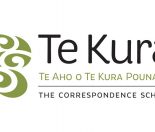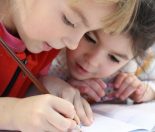Here are the key terms that you need to understand special education.
Advisor/adviser –
A specialist working alongside parents or caregivers and teachers to help a student with a particular disability
Alternative Education
Advocate
A person who will provide support and/or represent the interests of another person.
Assessment
An evaluation of a child or young person in their learning environment, that outlines their skills and needs, and the level of support required.
Early Intervention Teacher
Supports parents/whanau in preparing a child with Special Needs for school.
Goals
These are targets set by the teacher, family, student and service providers that a student can achieve within a set timeframe. Goals are often referred to as part of a student’s Individual Education Programme (IEP).
IEP
The Individual Education Programme (also known as Individual Education Plan) is a programme developed for school students with special education needs. It outlines the student’s goals and the time in which those goals should be achieved. The programme also includes the resources, monitoring and support, and the evaluation required to enable the student to meet those goals over the defined period. Ideally, the IEP is reviewed at least twice a year.
Moderate Needs
Special education needs which do not meet the criteria for the three high needs initiatives, but are significant enough for schools to identify and address. Schools may meet these needs through additional one-to-one or group learning support, through the use of their Special Education Grant (SEG), or through referrals to Resource Teachers: Learning and Behaviour (RTLB) or other services specifically for children and young people with moderate needs.
Mainstream/mainstreaming
A regular school environment where a student with special education needs is taught within a general classroom.
Occupational Therapist
Occupational therapists (OTs) help people improve their ability to perform tasks in their daily living and working environments. They work with individuals who have conditions that are mentally, physically, developmentally, or emotionally disabling.
Ongoing and Reviewable Resourcing Schemes (ORRS)
This is funding for extra teaching, specialist programmes, therapy, consumables and education support. Students are verified for the ORRS by a Ministry-appointed panel as having very high, high or combined moderate needs which are likely to be ongoing throughout their schooling years. If it’s unclear whether or not these needs will be ongoing for a child, their case will be reviewed at certain periods.
This resource is provided for children who have severe difficulties and therefore the highest need for special education. The resource funds:
- specialists to provide advice and programmes to meet a student’s special needs,
- additional teaching time,
- teacher aide time when children need support with personal care and/or to engage in the curriculum,
- a small grant for consumable items, such as audio tapes, disposable gloves.
Physiotherapist (PT)
Physiotherapy is a professional health discipline primarily directed toward the prevention and alleviation of movement problems to promote independence for the student in their home, school and community.
Resource Teachers: Learning and Behaviour (RTLB)
Specially trained teachers who support and work within schools to assist staff, parents and community members to meet the needs of students with moderate learning and/or behaviour difficulties.
Resourcing
Refers to the level of funding and assistance provided to students according to the help they need. The funding is provided either to the school or to the “fundholder” to manage the funds for students with special education needs.
SES (Specialist Education Services)
The now disestablished SES has become part of the Ministry of Education and is known as the Ministry’s Special Education group.
Severe Behaviour Difficulties
Students whose behaviour jeopardises their own physical safety or that of others and severely limits the student’s access to the school curriculum.
Special Education Grant (SEG)
This is funding provided to schools as part of their operational funding to be used for special education programmes. The SEG is provided to all state schools to assist them in supporting students with moderate to high levels of learning and/or behaviour difficulties. The SEG is allocated on the basis of a school’s roll number and decile rating and may be spent on professional development, new resources and materials, and additional staffing.
Special Education Group (GSE)
On February 28 2002, staff from the former Specialist Education Services (SES) and the Ministry of Education’s special education area combined to form a new group in the Ministry focused on providing services to children and young people with special education needs, and their families and whānau, schools, and early childhood education centres.
Special School
A school providing specialist education or support for students with specific physical, behaviour, sensory or intellectual support needs.
Teacher Aides
People who help educators support children and young people who have special education needs, also known as kaiawhina and paraprofessionals.
Therapists
Specialists who work to enhance a student’s learning in specific areas of need. Includes speech-language therapists, psychologists, occupational therapists, music therapists and physiotherapists.
Transition
Usually refers to the time when the child or young person is changing their educational environment. For example, moving from an early childhood centre to school, between schools, or from primary to secondary school or from school to the community.




